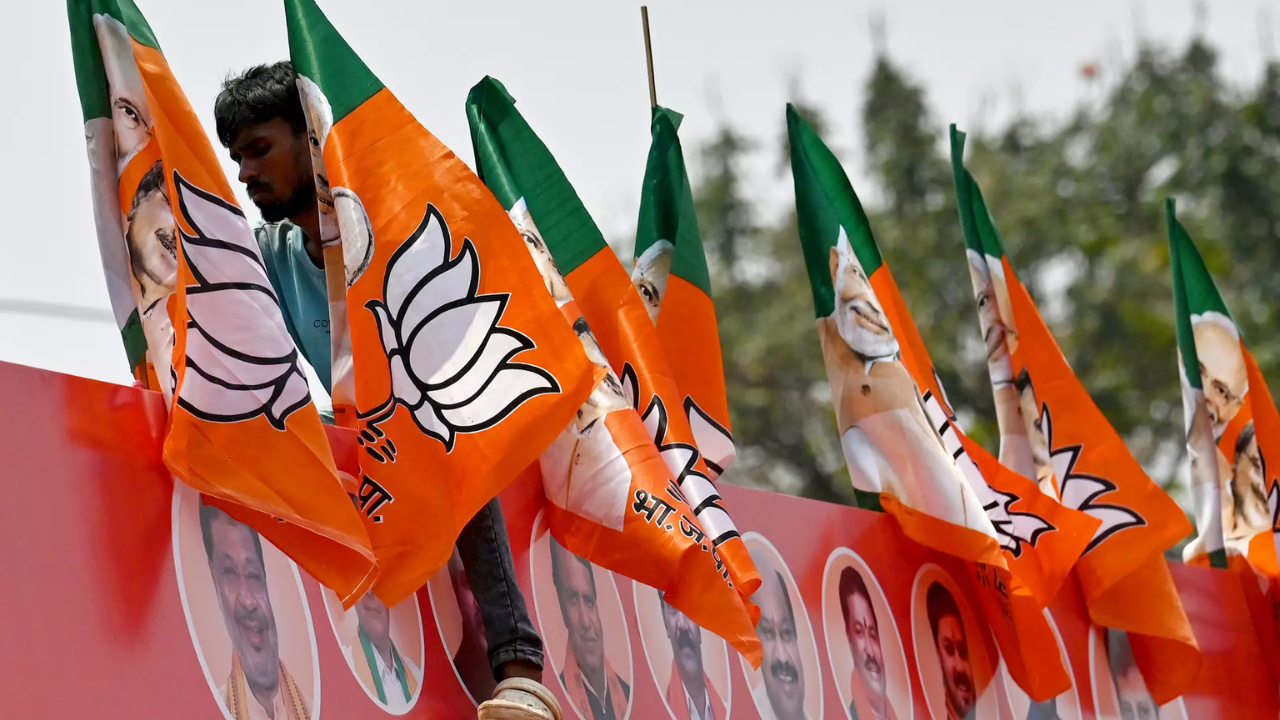If BJP loses power Nifty valuations can crash to pre-NDA levels, warns UBS
In case the ruling BJP fails to retain its single majority but forms a govt with the NDA with a majority (> 272 seats), then the market can be slightly less confident about policy stability as fiscal consolidation could be slower than envisaged. Historically, any underperformance triggered by poll results tends to reverse in the medium to long term, as Street and businesses adapt to new government policies.
Warning investors of a sharp knee-jerk reaction in the if the ruling loses power in the ongoing Lok Sabha , global brokerage firm on Monday said can even test pre-NDA levels in the worst-case scenario."Any unexpected outcome will likely be perceived negatively at least at first, due to political instability and possible weighing on business sentiment and impacting . This could trigger knee-jerk reactions in in the near term, with equity valuations possibly testing pre-NDA levels," said Premal Kamdar of .
Historically, any market underperformance triggered by election results tends to reverse in the medium to long term, as markets and businesses adapt to new .
The brokerage has considered four scenarios for investors in the election, the results of which will be declared on June 4.
Scenario 1
In the first scenario, assumes that will retain the single-party majority.
"In this scenario, markets will likely remain confident about policy continuity, but the likelihood of further reforms including on disinvestment, the land bill, and the uniform civil code could depend on the number of seats won. Overall, financial market sentiment will likely remain positive," the brokerage said.
Also read |
Scenario 2
If the BJP fails to retain its single majority, but forms a government with the with a majority (> 272 seats), then the market could be slightly less confident about policy stability as fiscal consolidation could be slower than envisaged.
"There could be pressure from other political alliances, but overall macro stability could still persist. We could see a mixed impact on financial markets," it said.
Scenario 3
In case there is a hung parliament with the failing to get the majority, there could be higher market uncertainty with the potential for prolonged political negotiations. "A less decisive government could lead to lags in implementing reforms. We envisage risks of policy paralysis, which could negatively impact financial markets," it said.
Scenario 4
If there is a change in government with the newly-formed coalition getting the majority, there could be significant market uncertainty with the potential for more abrupt policy changes.
"We see high risks of reversal of some reforms implemented by the NDA. Financial markets could potentially see a sharp knee-jerk reaction due to uncertainty that comes along with a change in government," UBS said.
However, as markets are known to revert to fundamentals, any significant weakness in equities could offer buy-on-dip opportunities.
Prime Minister Narendra Modi has already exuded confidence in both his party BJP and making new record highs on June 4.
Earlier last week, had said if BJP wins 290 plus seats, the market will rally followed by short-term profit booking. can grow in high single digits or low-double digits this year in that case.
"Continuity of power was known to equity markets, which is why we had a rally in Nov/Dec last year - playing again and again on the same theme leads to absurd outcomes for valuations - hence, we believe the focus will eventually return to macro, earnings growth, reasonability of valuations etc. The overanalysis based self-induced stress the markets have seen over the past month is the only reason for the relief rally we call for," Bernstein's Venugopal Garre said.
The pre-election rally has already seen Nifty hitting all-time record high levels above the 23,000-mark.
(Disclaimer: Recommendations, suggestions, views, and opinions given by the experts are their own. These do not represent the views of The Economic Times)
Source: Stocks-Markets-Economic Times
